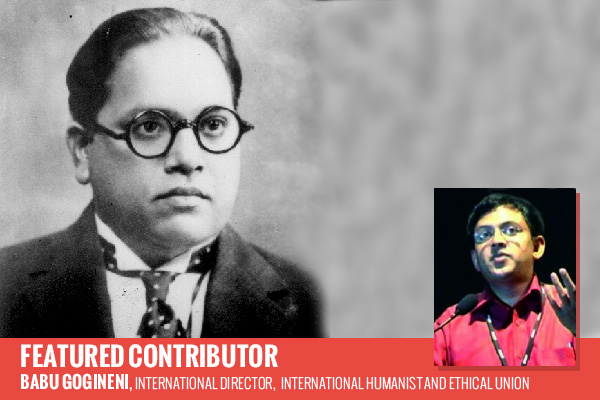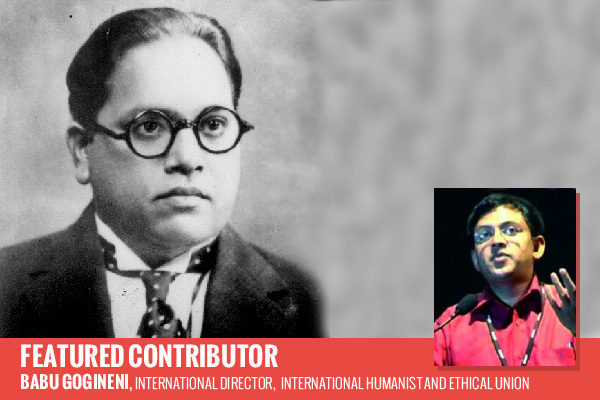
Second World Conference on Untouchability Being Held Until Friday April 18
- By Babu Gogineni --
- 15 Apr 2014 --

Dr. B.R. Ambedkar, Father of the Indian Constitution, will be studied at the Second World Conference on Untouchability, being held in Kathmandu, Nepal this week, April 14 – 18.
Politicians, Academics, Activists, Writers, Poets, NGO leaders and victims from around the world began meeting in Khatmandu, Nepal, for a series of events yesterday, April 14, the birthday of Dr. B.R. Ambedkar, Father of the Indian Constitution.
Dr. Ambedkar who was born an untouchable was an economist, lawyer, jurist and politician who rose to become the leading figure of Indian public life to fight the pernicious system of caste and the practice of Untouchability. A few years before his death in 1956, along with half a million of his followers, he converted from the Hinduism of his birth to a modern, rational version of Buddhism.
The International Humanist and Ethical Union (IHEU)‘s first World Conference on Untouchability was held in 2009 in London ahead of the UK legislative initiative against Caste Discrimination in the UK, and was inaugurated by the distinguished Economist Lord Meghnad Desai, and the Vice Chair of the Human Rights Committee of the House of Lords of the UK, Lord Eric Avebury.
BBC News coverage of the event can be reviewed here.
With participation from 13 countries, the Conference recognized the existence of this shame to humanity in India, Nepal, Bangladesh, Pakistan, Sri Lanka, Nigeria, Yemen, Korea, Burma, Japan and the fact that it existed in the past in Sweden, France and Spain. A crucial confirmation of the Conference was that Untouchability existed in many human societies and was not necessarily linked to one religion alone. The Conference resulted in the founding of the Global Alliance against Untouchability which rejects a religious approach or religious conversion as a means of solving the problem; the Conference also issued the Conway Hall Declaration.
The Second World Conference on Untouchability of IHEU is set to examine in depth questions of race and caste, social and religious factors, national and international legislation, practical ground level initiatives, electoral politics, recent court judgements on manual scavenging, Freedom of Religion or Belief of Dalits, internal problems of the communities treated as untouchables, as well as success stories.
With participation from the highest level of public life, the Conference will set the stage for international action within a non religious, secular and Humanist framework.


















